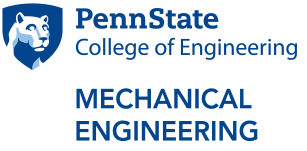Measuring the Viscosity of High Energy-Density Fluids
ABSTRACT: The mixing and transport of fluids at high pressures and temperatures can be found in applications ranging from planetary interiors to inertial confinement fusion. Modeling shows that the evolution of such flows are significantly altered when microphysical transport processes such as viscosity are explicitly included. However, despite the impact that viscosity has on the formation and growth of hydrodynamic instabilities and turbulence, experimental measurements of viscosity of materials at high energy-density conditions are limited in parameter space. Few viscometry techniques can be applied at high pressure; some can be applied to fluids that have been statically compressed (<10 GPa), and fewer still can be applied dynamically (>100 GPa). In this talk, we discuss ongoing experimental and modeling campaigns at advanced laser facilities to determine viscosity in dynamically compressed fluids using two different techniques. In the first experiment, we used x-ray radiography to measure the displacement of impulsively accelerated spheres in plastic, and compared these with unsteady forcing models that include viscous effects. In the second proposed experiment, viscosity will be deduced by measuring the evolution of a perturbed shock front with velocity interferometry. Unraveling the role of viscosity will improve hydrodynamic modeling for these complex systems and guide the development of particle-based velocimetry.
BIOGRAPHY: Jessica Shang is an assistant professor of Mechanical Engineering at the University of Rochester. She holds a BA from Harvard University, an MPhil from the University of Cambridge, and a PhD in Mechanical and Aerospace Engineering from Princeton University. Prior to joining UR, she did her postdoctoral work in Pediatrics at the Stanford School of Medicine, and received an NIH T32 postdoctoral fellowship with the Stanford Cardiovascular Institute. Prof. Shang received an ONR Summer Research Faculty Fellowship in 2017. Her research group primarily studies flows in the brain and transport in high energy-density flows.
Event Contact: Serena Sidwell


